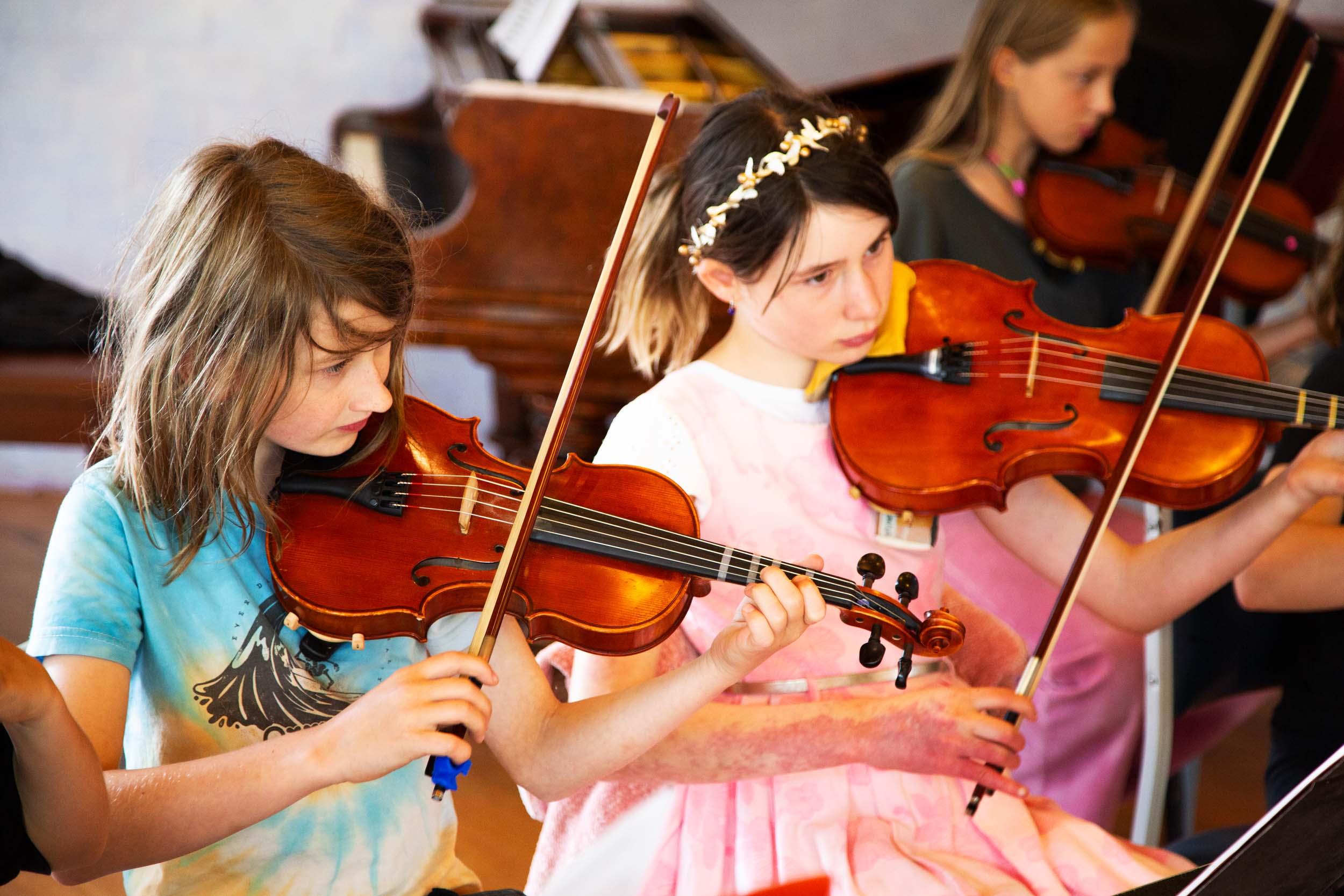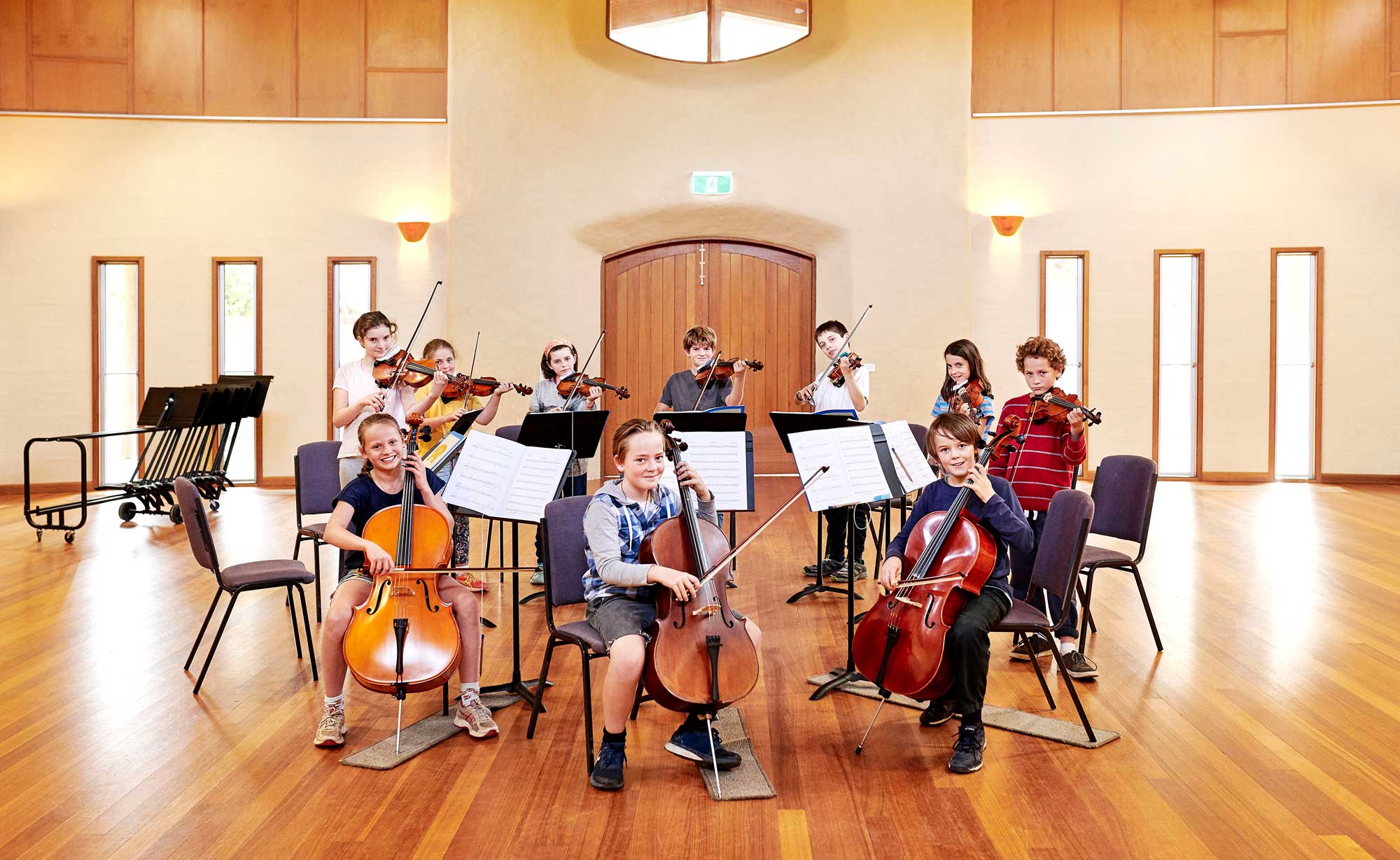Music
Music holds a natural place in an education that values imagination and creativity; it plays a significant role in cognitive, fine motor, emotional and social development; it enriches and enlivens our classrooms and homes. From the fluid, heartfelt singing and movement of early childhood to the conscious discipline of more formal tuition, music is a core component of Steiner education.
Our school fosters musical excellence in all areas – instrumental music, singing, music technology/recording and music performance. Musical activity throughout the school is shared regularly with parents and the wider community through performances and concerts.
Music is an art imbued with the power to penetrate into the very depth of the soul, imbuing humankind with love and virtue
Rudolf Steiner
Early Years
As with all aspects of our curriculum, our music program works closely with the developmental stages of childhood. In the Early Years music begins with the human voice: the voice of the teacher and the voice of the child.
The rhythm of the day in the early classes is literally sung into being by the teacher, from the morning song through to songs for morning circle, stories, meal-times and tidying-up at the end of the day.
The musical style of these Early Years is pentatonic, in keeping with the unselfconscious openness of the child to a world that is simple, good and beautiful.
Primary Years
Instrumental music is an integral part of our Primary Years program. During Class 1, children are introduced to the recorder and the breath with which they have sung so beautifully now also makes their recorders resound.
These musical developments continue into Class 3, when each child begins learning violin, viola or cello. Commitment to an instrument from this age helps develop self-evaluation, discipline, practice, concentration, artistic expression, interpretation, tone production, rhythm and accuracy of pitch.
It also allows each student to contribute their part to the group musical experience of the class orchestra. By becoming a member of an orchestra, a child finds they are important to the whole, while at the same time realising that all others are equally important.

Secondary Years
Towards the end of Class 6, students choose their musical instrument for Secondary school. At this stage they may choose a different instrument to suit their interest and extend their ability and practice. Many existing students continue with their stringed instruments; some swap to a new instrument; others add a second instrument. Learning an instrument continues to be a compulsory aspect of the curriculum until the end of Class 8.
The Secondary school’s music program encourages students to expand and broaden in every sense. Opportunities abound for performance and working in a group or ensemble. It is truly delightful to experience the energy and excitement that accompanies our students’ diverse, eclectic performances.
VCE music further extends our students’ academic understanding of music, as well as deepening self-expression and individual style, developing a greater appreciation of tone and a higher level of playing with accuracy and precision.
